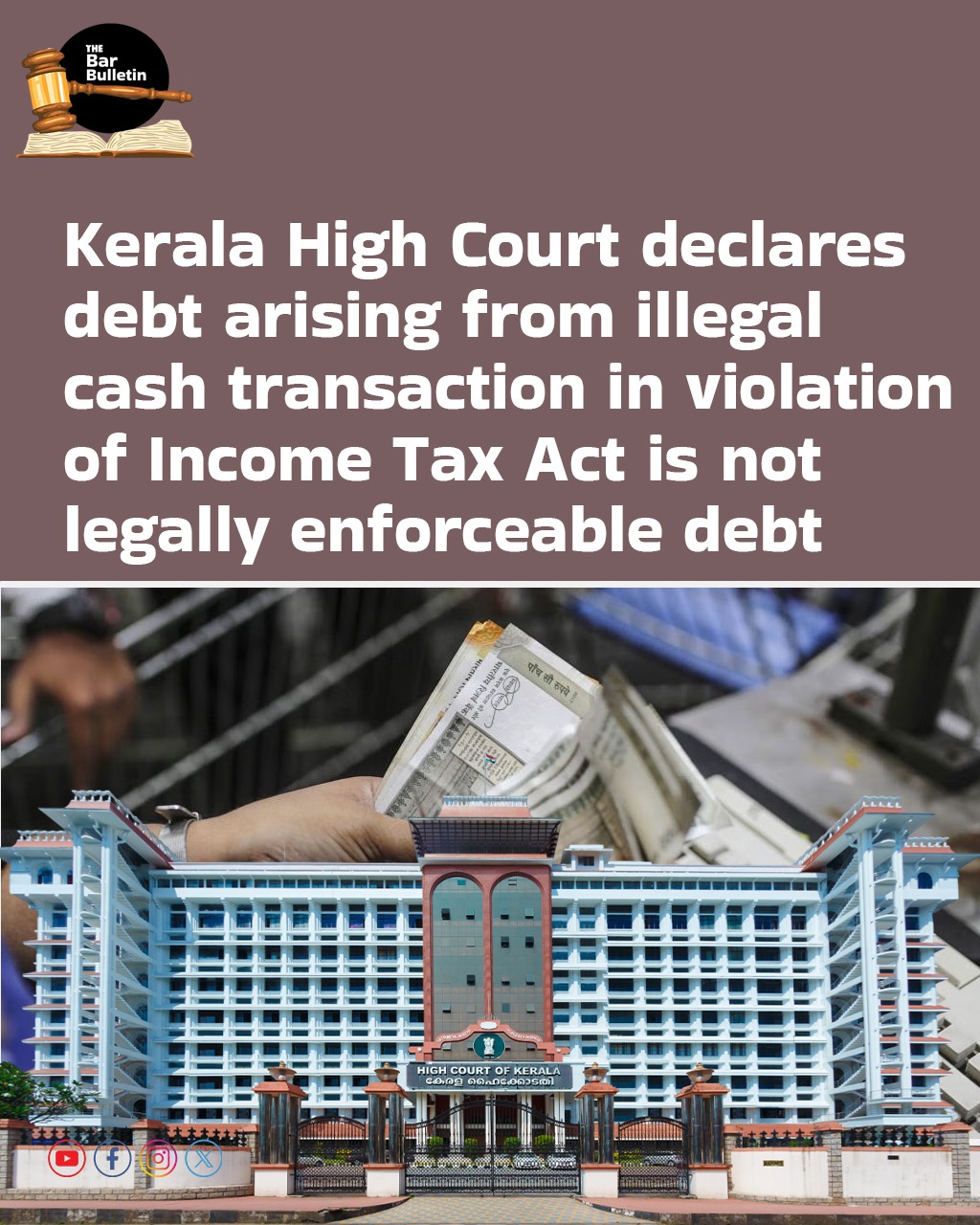While clarifying an interesting issue as to the maintainability of cheque dishonour complaint, the Kerala High Court has ruled that the debt arising from an illegal transaction cannot be treated as a legally enforceable debt. Since in the present case, the complainant has neither paid any income tax on the alleged cash of Rs. 9 lakhs advanced to the accused, nor offered any explanation for such excessive payment in cash in violation of Section 269SS of the Income Tax Act, 1961 (I-T Act), the Court clarified that the accused rightly rebutted the presumption under Section 139 of the Negotiable Instruments Act, 1881 (NI Act). Accordingly, the Court treated the debt claimed to have been created by a cash transaction above Rs. 20,000 in violation of the Income Tax Act as ‘no legally enforceable debt’.
A Single Judge Bench of Justice P.V. Kunhikrishnan observed that in case there is no challenge to the cash debt, it is presumed, in the light of Section 139 of the NI Act, that there is a valid explanation to the complainant under Section 273B of the I-T Act. However, if anybody pays an amount over and above Rs. 20 thousand to another person by cash in violation of Section 269SS, and thereafter receives a cheque for that debt, he should take responsibility to get back the amount, unless there is a valid explanation for such cash transactions. The Bench also observed that if there is no valid explanation in tune with Section 273B, the doors of the criminal court will be closed for such illegal transactions.
Briefly, it was the plea of the complainant that for the discharge of a debt of Rs. 9 lacs, the petitioner (accused) issued a cheque of the same amount to the complainant, which stood dishonoured when presented, for the reason “funds insufficient”. The Trial Court found the accused guilty of the offence under Section 138 of the Negotiable Instruments Act, 1881 (NI Act) and sentenced him to simple imprisonment for one year and a fine of Rs. 9 lacs to be paid to the complainant. This conviction and sentence were upheld by the Sessions Court.
When the matter reached the High Court, it considered the submission of the petitioner who relied on Section 269SS of the I-T Act to state that any transaction above Rs. 20 thousand can only be done either through a bank account or by issuance of a cheque/ draft. Although the petitioner admitted cash payment of Rs. 9 lacs, he claimed that such action of the complainant was in violation of Section 269SS of the I-T Act, and hence calls for penalty u/s 271D of the I-T Act. This was opposed by the complainant by arguing that the possibility of levy of penalty for the cash transaction in violation of Section 269SS at the behest of the drawer of a cheque will not render the actual transaction void.
The High Court observed that a debt is generally understood as a sum of money owed by one party to another, often arising from a contract or agreement. If the debt arises through an illegal transaction, that debt cannot be treated as a legally enforceable debt. Therefore, while deprecating such cash transactions, the Court cautioned that if regularised, it would encourage illegal transactions, and black money would be converted into white money through the criminal courts.
Appearances:
Advocates D. Kishore, Meera Gopinath, and R. Muraleekrishnan, for the Petitioner
Advocates Manu Ramachandran, M. Kiranlal, T.S. Sarath, R. Rajesh, Sameer M. Nair, Sailakshmi Menon, Jothisha K.A., and Shifana M., for the Respondent

